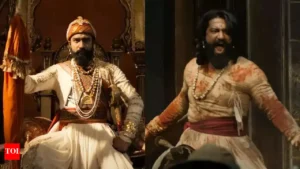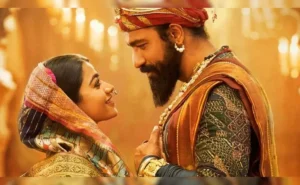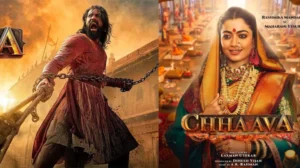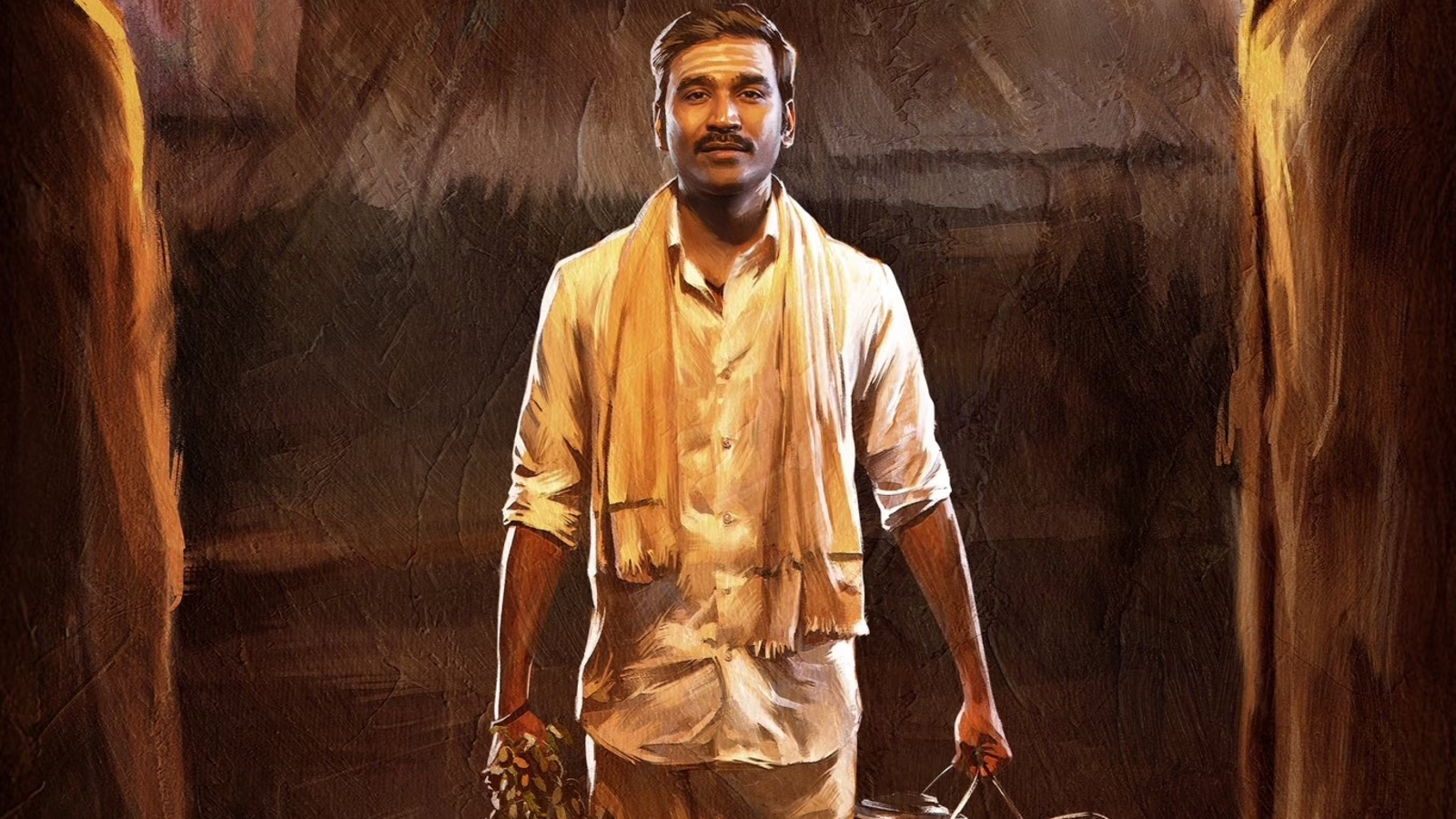Vicky Kaushal’s Chhaava beats Shah Rukh Khan’s Jawan to become the 3rd biggest hit of Hindi Cinema!

Vicky Kaushal’s period drama “Chhaava” has taken the Indian box office by storm, achieving a monumental milestone in Hindi cinema. Directed by Laxman Utekar and based on the life of the Maratha warrior king Chhatrapati Sambhaji Maharaj, the film has resonated deeply with audiences nationwide. With a staggering worldwide gross of approximately ₹645.58 crore, including ₹556.74 crore from India and ₹88.84 crore from overseas markets, “Chhaava” has solidified its place as one of the most successful Hindi films of all time.
The film’s remarkable performance has catapulted  it into the elite league of Bollywood superstars. Still, it has also led to widespread discussion about its historical narrative, cinematic quality, and cultural significance. While some early reports speculated that it might have surpassed Shah Rukh Khan’s mega-blockbuster “Jawan” to become the third highest-grossing Hindi film globally, current box office data shows that “Jawan” still retains that position with a worldwide gross of over ₹1100 crore. Nevertheless, “Chhaava” stands tall in the domestic box office rankings with an impressive net collection of ₹600 crore, marking a significant achievement for the film industry.
it into the elite league of Bollywood superstars. Still, it has also led to widespread discussion about its historical narrative, cinematic quality, and cultural significance. While some early reports speculated that it might have surpassed Shah Rukh Khan’s mega-blockbuster “Jawan” to become the third highest-grossing Hindi film globally, current box office data shows that “Jawan” still retains that position with a worldwide gross of over ₹1100 crore. Nevertheless, “Chhaava” stands tall in the domestic box office rankings with an impressive net collection of ₹600 crore, marking a significant achievement for the film industry.
Set in the 17th century, “Chhaava” chronicles the life of Chhatrapati Sambhaji Maharaj, the son of Chhatrapati Shivaji Maharaj and the second ruler of the Maratha Empire. The film dives deep into the political upheavals, personal sacrifices, and heroic battles that defined Sambhaji’s reign. Vicky Kaushal, portraying the titular character, delivers a power-packed performance that has earned accolades from both critics and audiences alike. His portrayal balances the fierce warrior persona with the emotional complexity of a son, husband, and ruler caught in the tides of history.

Rashmika Mandanna stars as Yesubai, Sambhaji’s wife, bringing grace and strength to her role. Akshaye Khanna’s depiction of Mughal Emperor Aurangzeb adds a powerful dimension to the narrative, showcasing the intense ideological and military conflicts of the era. The film’s ensemble cast, detailed production design, and stirring musical score by Amit Trivedi contribute to an immersive cinematic experience that transcends time.
One of the key factors contributing to the film’s success is its powerful storytelling, which seamlessly blends historical fact with cinematic drama. The screenplay, co-written by Laxman Utekar and Aditya Dhar, avoids glorifying violence and instead focuses on the human cost of war and the burden of leadership. This approach has resonated with a broad audience, particularly in Maharashtra and other parts of India, where the legacy of the Maratha Empire is still deeply revered.
The film’s release was strategically timed to coincide with the Republic Day weekend, maximizing its exposure and box office potential. The marketing campaign emphasized the film’s historical roots and patriotic undertones, drawing comparisons to previous hits like “Tanhaji” and “Bajirao Mastani.” Word-of-mouth praise and critical acclaim helped sustain its momentum at the box office, with packed theaters even in smaller towns and rural areas.

“Chhaava” has also gained recognition on the global stage. Its overseas collections have crossed ₹88 crore, a notable figure for a historical film with a predominantly Indian cultural context. The film’s universal themes of resistance, identity, and sacrifice have found resonance with the Indian diaspora and international cinephiles alike. Special screenings in the United States, the United Kingdom, and the Middle East saw enthusiastic turnouts and triggered discussions about the global relevance of Indian history.
Beyond box office numbers, “Chhaava” has sparked renewed interest in Sambhaji Maharaj’s legacy. Educational institutions, cultural forums, and social media platforms have seen a surge in conversations about his contributions to Indian history. The film has also prompted political leaders and historians to weigh in on its historical accuracy and cultural impact. Prime Minister Narendra Modi even acknowledged the film during a public address, praising its role in highlighting an important chapter of India’s past.
This success marks a significant milestone for Vicky Kaushal, who has consistently proven his versatility across genres. From patriotic dramas like “Uri: The Surgical Strike” to romantic comedies and intense thrillers, Kaushal has carved a unique niche for himself. “Chhaava” not only reinforces his reputation as a bankable star but also showcases his commitment to meaningful cinema.

Director Laxman Utekar, known for his earlier films like “Luka Chuppi” and “Mimi,” has taken a bold step with “Chhaava,” venturing into uncharted historical territory. His meticulous attention to detail, combined with a strong narrative vision, has been instrumental in the film’s success. Utekar’s collaboration with producers Ronnie Screwvala and Aditya Dhar has resulted in a well-balanced blend of commercial viability and artistic integrity.
As Hindi cinema continues to evolve, “Chhaava” stands as a testament to the audience’s appetite for well-crafted historical dramas that go beyond spectacle. It highlights the importance of storytelling that is rooted in culture, yet universally relatable. The film’s success could pave the way for more such ventures, encouraging filmmakers to delve into India’s rich historical tapestry with creativity and respect.
In conclusion, while “Chhaava” may not have overtaken “Jawan” in the global box office race, its phenomenal domestic performance and cultural impact are undeniable. It has redefined the standards for historical epics in Indian cinema and brought the legacy of Chhatrapati Sambhaji Maharaj into the limelight for a new generation. With its powerful performances, compelling narrative, and box office success, “Chhaava” has etched its name in the annals of Hindi film history.











